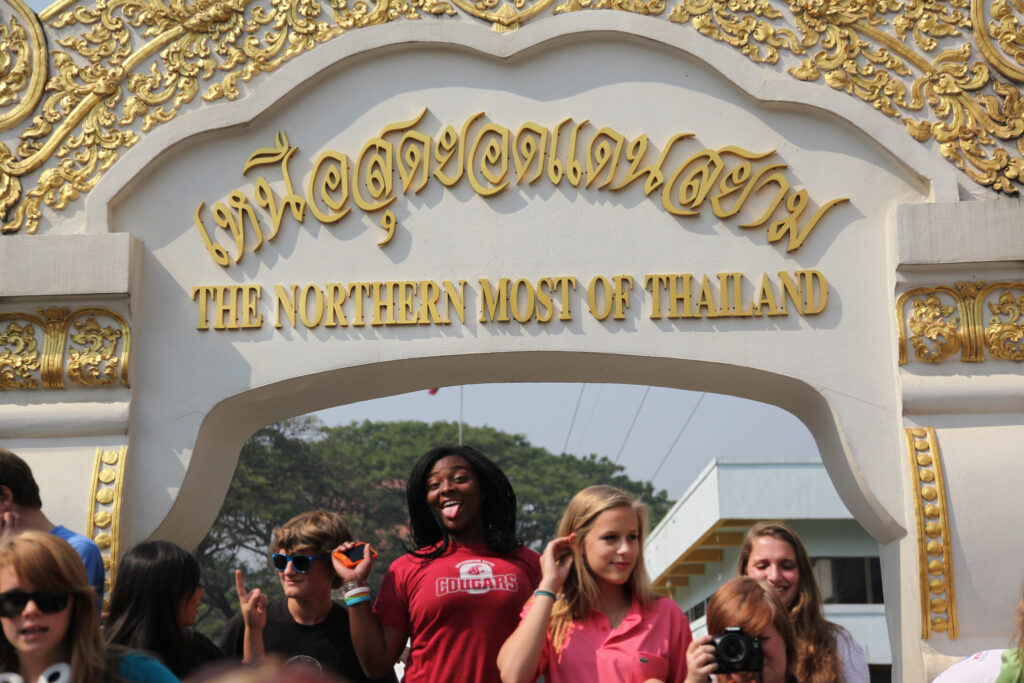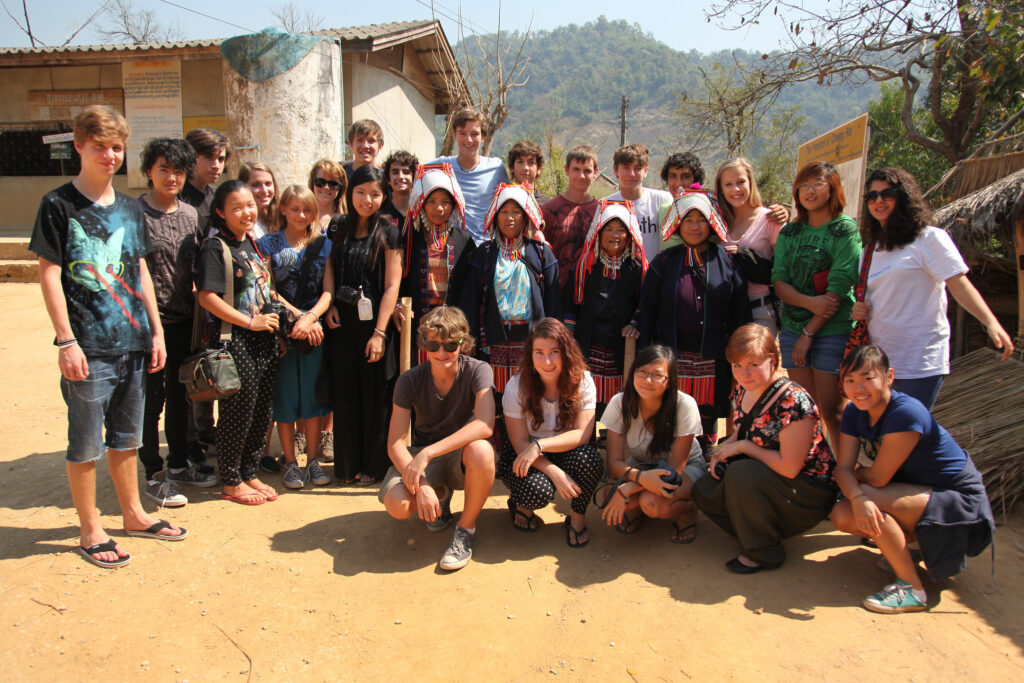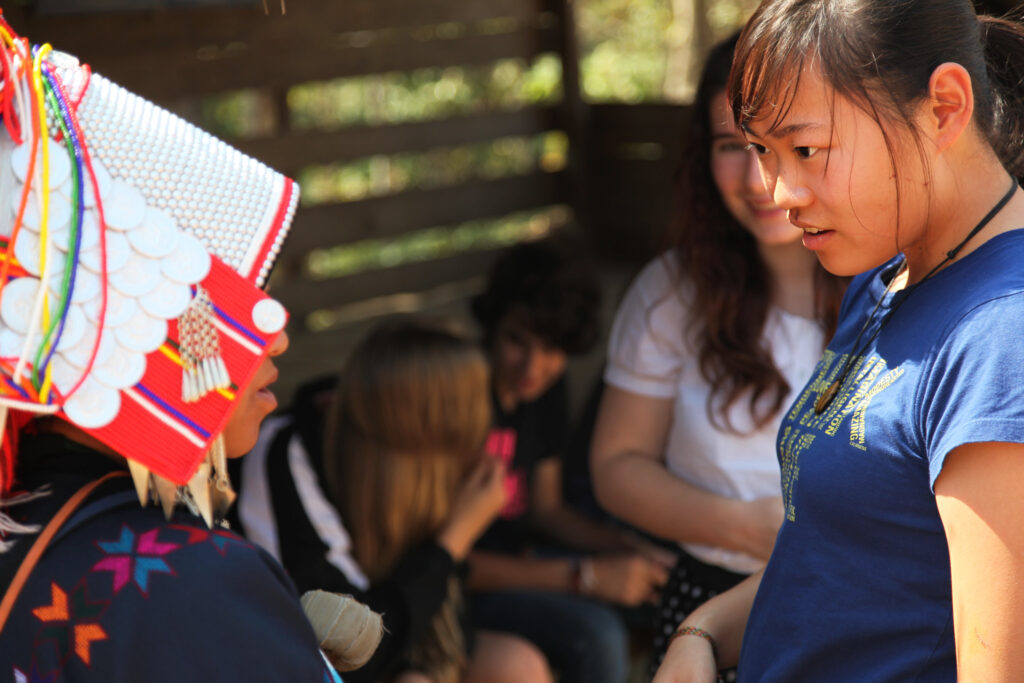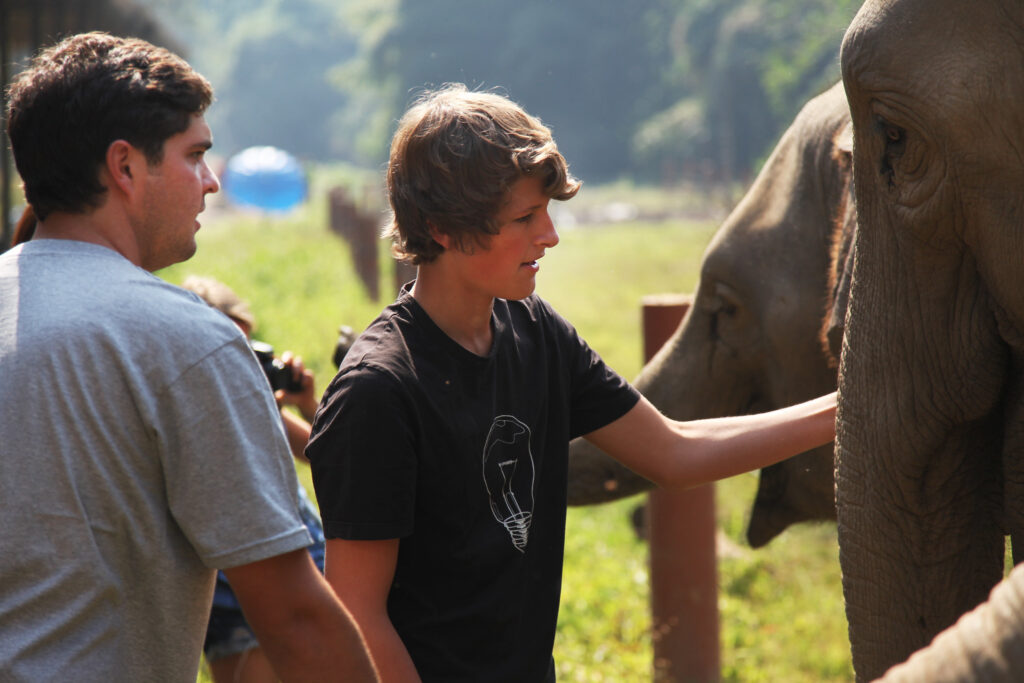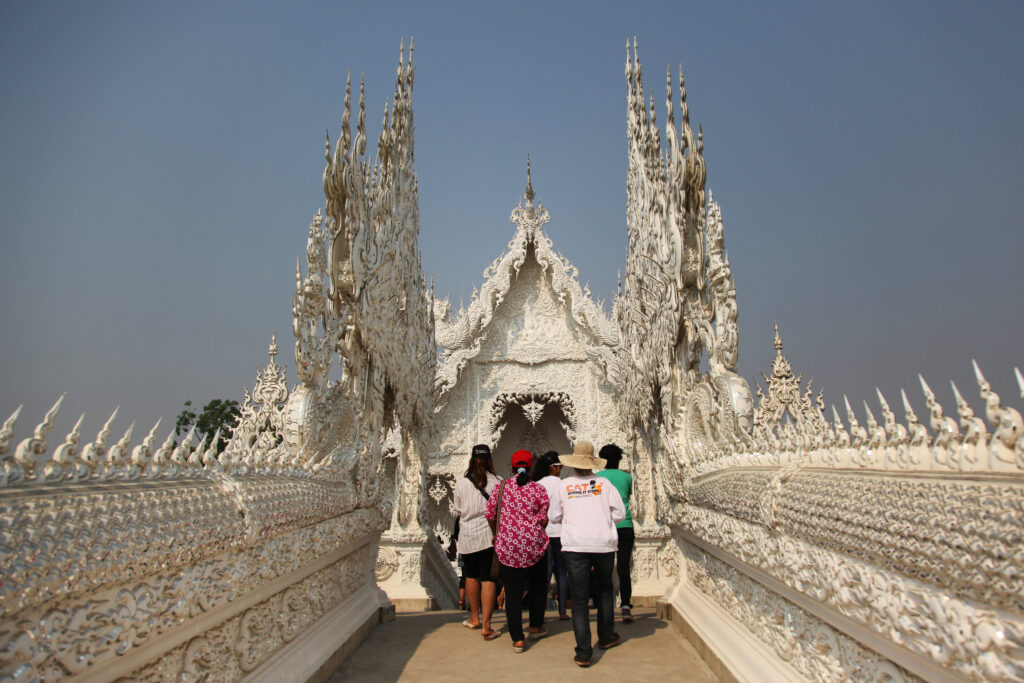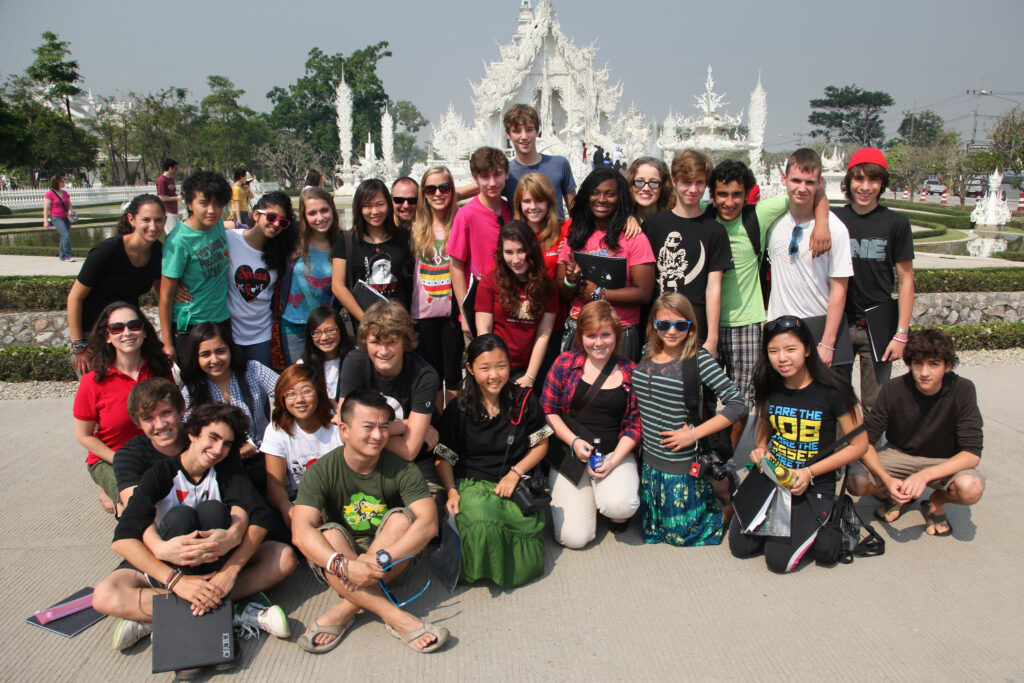Are you interested in applying to THINK Global School but aren’t quite sure if it’s right for you? That’s OK! It’s a decision that shouldn’t be taken lightly. To help you in your application process, we’ve put together a list of five things we feel every applicant to THINK Global School should know. We hope you find them helpful. 1) You’ll gain an education by living and learning in the...
Read MoreBOTH TEA AND OPIUM have been produced in Thailand’s northern Chiang Rai province for thousands of years, just as elephants have been a constant. This past week, TGS took advantage of the opportunity for place-based learning on these subjects, venturing three hours north to the Chiang Rai province.
In Mae Salong, the area’s largest producer of tea, students walked through tea plantations before taste testing several different types of tea. Included was a visit to a tea production house, where tea leaves are dried, ‘bruised’, and processed. Students enjoyed an informative lecture by Peter Holmshaw, learning about tea’s extensive history in the region, along with the knowledge of how to properly brew and enjoy it.
A visit to the Opium Museum provided extensive background information into the history of opium growth and use in Thailand. As they moved throughout the three-floor installation, students toured exhibits showcasing opium in the early years, its rise in popularity across the globe, how it’s processed, and the effects opium has on the body causing addiction. With the museum laying the groundwork for understanding, TGS boarded a boat to motor down the mighty Mekong river, to get a glimpse of bordering Myanmar before stepping ashore on the island of Donsao in Laos.
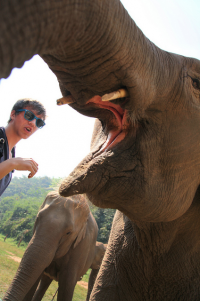 The Golden Triangle Asian Elephant Foundation and Think Elephants International offered the chance to be trunk-length away from 18 elephants that actively participate in research projects on convergent cognitive evolution. Joshua Plotnik, Ph.D., Head of Elephant Research, demonstrated several cognitive tests he has been working on through the past 3 years to gain further understanding of how elephants view their world. Students were able to witness firsthand their incredible intelligence before sitting down for a deep discussion with Josh and Director of Elephants, John Roberts.
The Golden Triangle Asian Elephant Foundation and Think Elephants International offered the chance to be trunk-length away from 18 elephants that actively participate in research projects on convergent cognitive evolution. Joshua Plotnik, Ph.D., Head of Elephant Research, demonstrated several cognitive tests he has been working on through the past 3 years to gain further understanding of how elephants view their world. Students were able to witness firsthand their incredible intelligence before sitting down for a deep discussion with Josh and Director of Elephants, John Roberts.
Other activities included a stop with a hill tribe to learn historical methods of trapping and hunting, as well as trying their hands at a loom to make a pair of wool socks. The ride back afforded the opportunity to see Wat Rong Khun, or the White Temple, in Chiang Rai. Unlike most temples done in gold, Wat Rong Khun is completely white, as the name would suggest. Students wandered the temple grounds with sketchbooks in hand; ready to take down impressions of the blend between traditional Thai culture and the diffusion, assimilation, and/or imperialism of other cultures.
